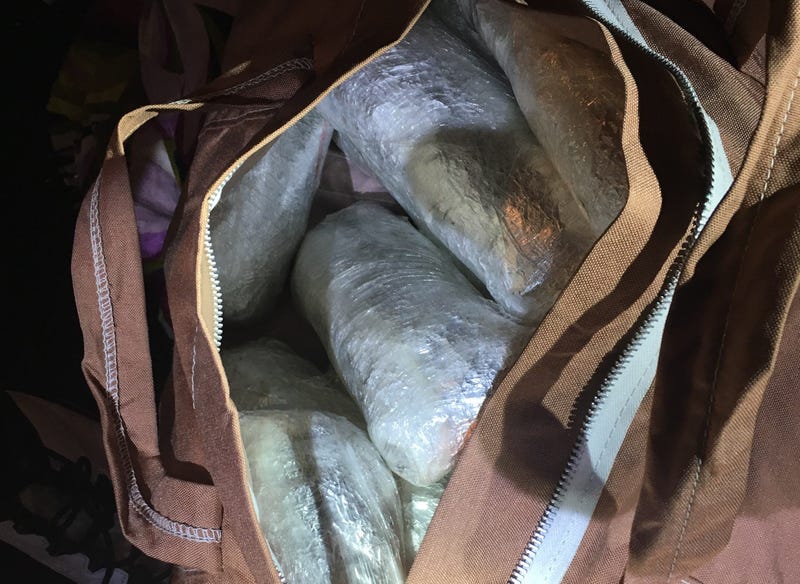
Two Minnesota women are behind bars after being stopped in Wisconsin with 16 pounds of Methamphetamine.
The Wisconsin State Patrol reports that about 10:12 pm Sunday, troopers stopped a vehicle on Interstate 94 in Eau Claire County for a traffic violation.
A canine then found a large duffle bag, pictured above, containing the drugs worth an estimated $300,000. Wisconsin State Patrol Sgt. Both the driver and a passenger were arrested. Thirty-five-year-old Salina Goodwin of Ogema and 39-year-old Crystal Oquist of Minneapolis will likely face charges of possession with intent to deliver, according to authorities.
Wisconsin State Patrol Sgt. Patrick Kraetke says the seizure is indicative how meth is flooding into the area.
"We are well aware that I-94 is a drug trafficking highway. We do have details that are scheduled to look out for suspicious activity," he said.
He believes that meth is an even bigger problem than heroin.
"Quite frankly, I would consider it more of an epidemic at this point," he said.
The Star Tribune published a series last April on meth’s meteoric rise in Minnesota, and the role played by Mexican drug cartels in trafficking the drug north. As reporter Stephen Montemayor noted, from 2007 to 2017, the number of Minnesota treated for addiction to meth doubled, rising to nearly 14,000 in 2007. That figure, Montemayor reported, was, “more than those treated for addiction to heroin and other opioids combined.”
According to Kraetke, the meth epidemic leads to other crimes as well, like burglary. He knows treatment is paert of the solution , but he gets tired of seeing the same faces over and over.
"Meaning people out there that get help but when you're back to the same location and same people, you just can't get out of it."
And oftentimes, it's the children who suffer. In last night's arrest, they found a four-year-old child in the car, who ended up being turned over to human services.
